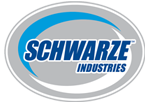“I have used non-OEM brand filters for years and never had any issues,” we often hear customers say, and when you’re talking about older fuel systems, this is not a surprising response.
However, as demands for lower emissions, improved performance, and reduced fuel consumption have intensified, fuel injection system designs have changed. The most prominent change in design is the steady increase in maximum injection pressure in newer diesel engines. Where 10 years ago injection pressures were only in the sub 10,000 PSI range; today they are exceeding 30,000 PSI.
Tier 4 fuel systems are highly sensitive to contamination and thus require extreme filtration. The size and number of particles that get through the fuel filter have to be limited to sub-four micron range. All fuel filters remove some abrasive particles, but some are simply not effective at filtering the particles that are most damaging to the fuel system. When those particles interact with the internal components of the engine at high-pressure, they quickly erode away at various areas of the engine, ultimately having a negative impact on equipment performance and fuel economy.
It’s difficult to determine the “true cost” of using non-OEM filters because you can rarely draw a direct cause and effect line from an engine failure to your choice of filters. But, if you monitor early failures across components in the system, you can begin to calculate a bottom line cost.
When looking at non-OEM fuel filters, you could realize cost savings at purchase ranging from 33 to 44%. But while you may start out ahead by a few dollars, you will quickly experience the effects of premature, early-hour injector failures, and could end up costing you thousands of dollars.
Too often we hear the complaint, “But my OEM filter clogs up too fast! So I switched to another brand, and the filter no longer clogs up.”
Let’s think about that for a minute, “I switched, and the filter no longer clogs up.”
If the OEM filter is clogging up and the non-OEM filter is not, what does that tell you? It tells you that the non-OEM filter is not capturing and holding contaminates and allowing them to pass freely through the fuel system. It’s as simple as that.
Submit your Schwarze Story here: Schwarze Stories

